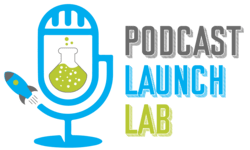Podcasting has become an essential platform for storytelling, education, and brand-building. One key decision podcasters must make is whether to create standalone episodes or develop a series that explores topics in depth. Both approaches have unique advantages, and choosing the right format can significantly impact audience engagement, content quality, and podcast growth. In this blog, we’ll explore the benefits of podcast series and compare deep-dive formats to single episodes to help you determine the best strategy for your podcast.
What Is a Podcast Series?
A podcast series consists of multiple episodes focusing on a single theme, topic, or story arc. These series may be released all at once, as in binge-worthy narrative podcasts, or over time in a structured format. Podcast series are commonly used for investigative journalism, educational content, and storytelling but can also be adapted to interview-based and business-focused podcasts.
The Power of Deep Dives in Podcasting
1. In-Depth Exploration of a Topic
A major advantage of a podcast series is the ability to provide a deep dive into a subject. Instead of cramming all information into a single episode, podcasters can take their time exploring various aspects, perspectives, and case studies related to the topic. This level of depth enhances the audience’s understanding and engagement.
2. Stronger Audience Retention
When listeners are invested in a podcast series, they are more likely to return for multiple episodes. This increased retention benefits podcasters by improving download numbers, listener loyalty, and overall brand recognition. Platforms like Apple Podcasts and Spotify favor podcasts with high listener retention, which can improve rankings and discoverability.
3. Opportunities for Storytelling
A series format allows for more compelling storytelling. Whether it’s a true-crime investigation, a business case study, or a historical analysis, dividing content into multiple episodes builds suspense, keeps listeners engaged, and encourages them to tune in week after week.
4. Increased Monetization Potential
With a longer content arc, podcasters have more opportunities to monetize their show. A series format allows for multiple sponsorship placements, premium content offerings, and subscription-based episodes. Advertisers are often more interested in podcasts that keep listeners engaged over multiple episodes, as it increases the effectiveness of ads.
5. Better SEO and Discoverability
Each episode in a podcast series can target different keywords and audience segments. By optimizing episode titles, descriptions, and transcripts with relevant keywords, podcasters can improve their visibility in search engines and podcast directories.
The Benefits of Single Episodes
While podcast series offer many advantages, single episodes also serve an important role. Some topics are best covered in a concise, self-contained format. Here’s why some podcasters prefer single episodes:
1. Easier to Produce and Manage
Producing a standalone episode requires less long-term planning compared to a multi-part series. For podcasters with limited time and resources, single episodes allow for more flexibility and less commitment to extended content arcs.
2. Great for Evergreen Content
Single episodes can be excellent for evergreen content—episodes that remain relevant regardless of when they are listened to. This format works well for interviews, expert insights, and educational discussions that don’t require sequential listening.
3. Wider Audience Reach
Listeners are more likely to click on single episodes if they are looking for a quick answer or insight on a specific topic. This is especially beneficial for SEO, as individual episodes can rank for different search queries, bringing in new listeners who may not be ready to commit to a full series.
4. Better for Variety and Experimentation
Podcasters who prefer to cover a range of topics without being tied to one theme may find single episodes more appealing. This format allows for experimentation with different content styles and guest appearances without committing to a long-term series structure.
Choosing the Right Format for Your Podcast
When deciding between a podcast series and single episodes, consider the following factors:
- Content Type: If your podcast covers complex or evolving topics, a series might be the best fit. If you prefer covering a wide variety of topics, single episodes may work better.
- Audience Preferences: Analyze your audience’s listening habits. Are they more likely to binge multiple episodes, or do they prefer standalone content?
- Production Resources: A podcast series requires more planning and editing, while single episodes are easier to produce and release on a regular schedule.
- Monetization Goals: If sponsorships and long-term audience engagement are key goals, a series format might provide more value.
Conclusion
Both podcast series and single episodes have their unique advantages. A deep-dive podcast series provides rich, engaging content that keeps listeners coming back, while single episodes offer flexibility and ease of production. By understanding your audience, content goals, and production capacity, you can choose the format that best aligns with your podcasting vision. Whether you opt for a series or standalone episodes, the key to success is creating high-quality, engaging content that resonates with your listeners.
Need help launching your podcast?
Schedule a Free Podcast Strategy Call TODAY!


Recent Comments